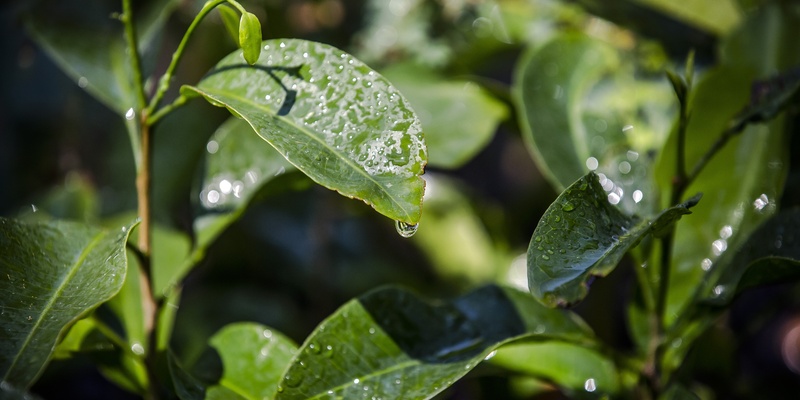The Implementation Committee (IC) welcomes five new representatives
Posted on Wed, 28 Jun 2023, 10:02

© FAO/Luis Tato
The Implementation and Capacity Development Committee (IC) was established during CPM-12 (2017) to assist the CPM in addressing implementation and capacity development issues and to oversee the IPPC Community’s work in this area. With the 2020-2023 term coming to an end for IC members, according to the IC Terms of Reference, the IPPC Secretariat launched a 2022 Call for IC members. The call was opened to solicit nominations of IC regional representatives and experts from national plant protection organizations (NPPOs) and regional plant protection organizations (RPPOs). The seven Food and Agriculture Organization of the United Nations (FAO) regions then devised their own procedures for selecting their regional representatives. The final regional selection was communicated to the IPPC Secretariat through CPM Bureau members and the nominees were confirmed as IC members during CPM-17 in March 2023.
In addition to a number of current IC regional representatives who were re-confirmed for the 2023-2026 term, this marks an important moment for the IC as, with five members ending their IC terms, we take the opportunity to welcome five new IC representatives.
Ezequiel Ferro joins the IC as regional representative for Latin America and the Caribbean
 | Ezequiel Ferro is an Agricultural Engineer working for the NPPO of Argentina (SENASA). During his time within the NPPO Ezequiel has held various positions such as the coordination of pest risk system approach programs for fruit exports, national programs for pest control, and engagement in the development of national phytosanitary regulations. He currently leads the International Phytosanitary Affairs of the Argentina NPPO carrying out activities such as managing national phytosanitary issues with the different markets as well as regional and multilateral agreements in the phytosanitary field. Ezequiel also has experience within the RPPO as Coordination Secretary of COSAVE (Southern Cone Plant Health Committee). From 2013 to 2022 Ezequiel was a member of the IPPC Standards Committee, including being Chairman for the last five years. In this capacity he took part in several IPPC working groups such as the National Reporting Obligation Advisory Group, Task Force on Topics and Focus Group on Commodity and Pathway Standards. Ezequiel greatly welcomes the chance to join the IC, in his words “increasing the implementation of both the IPPC and ISPMs by Contracting Parties, whilst being mindful that the circumstances and contexts of each country and region may be significantly different, is a great challenge which I welcome in the quest to improve plant health and protection, promote transparency in the regulation of regulated articles and improve the safe international movement of such articles”. |
Lucien Kouame Konan joins the IC as regional representative for Africa
 | Lucien Kouame Konan has been working in the phytosanitary field for more than 35 years. Lucien’s career began as a junior phytosanitary inspector for the Department of Plant Protection of the Ministry of Agriculture in Côte d’Ivoire, after receiving a bachelor’s degree in Agronomy from the School of Agriculture in Rennes, France and from Abidjan, Côte d’Ivoire in 1985, later earning a Master’s Degree in Integrated Pest Management and a Ph.D in Entomology and Plant Protection. While serving as Phytosanitary Inspector, Deputy-Director and Director of the Direction de la Protection des Végétaux, du Contrôle et de la Qualité (DPVCQ) for the NPPO of Côte d’Ivoire, he successfully managed the country’s phytosanitary system and the control/containment of several plant pests in the country. Lucien has long been involved in the activities of the International Plant Protection Convention (IPPC) Secretariat. He served as the IPPC Official Contact Point for Côte d’Ivoire and played an instrumental role as representative of the African Region to the CPM Bureau in the last eight years. As former Chair of the Commission on Phytosanitary Measures (CPM) from 2018 to March 2023, he led the virtual CPM-15 and -16 sessions as well as the in-person session at CPM-17, as well as being a member of a number of CPM working groups. In joining the IC, Lucien shares “The corona virus pandemic has shown that immense challenges still lie ahead to better implement the Convention so that it can effectively safeguard agriculture and facilitate safe trade. However, we can only be successful by joining hands in helping each other. We, therefore, need capacities that are commensurate with the challenges we face, and that means capacity-building at all levels”. |
 | Melisa Nedilskyj is an Agricultural Engineer holding a Bachelor’s degree from the Faculty of Agricultural Sciences of the Lomas de Zamora National University and a Master’s Degree in international relations from FLACSO Argentina. Melisa first started working in the NPPO of Argentina in 2008, in the Plant Quarantine Directorate. The many and diverse activies carried out by the Directorate include conducting Pest Risk Analysis (PRA) for phytosanitary import requirements and developing inspection procedures related to market access, all of which entail the use of regional and international phytosanitary standards. In addition to her role within the NPPO, for 11 years Melisa has been a member of the Plant Quarantine Working Group of COSAVE (Comité de Sanidad Vegetal del Cono Sur), the RPPO for South American countries. Currently Melisa is in charge of the secretariat of this RPPO, coordinating all the activities between its member countries to strengthen regional phytosanitary integration, increase the phytosanitary capacity and develop integrated actions aimed at solving phytosanitary problems of common interest. On becoming the RPPO representative in the IC Melisa said “working in an RPPO and with other RPPOs has given me this opportunity and now I have the great challenge and feel very enthusiastic about sharing the multiple interests, concerns and chances that regions provide regarding implementation of IPPC, ISPMs and recommendations through the excellent IPPC implementation materials that are being developed.” |
Ngatoko Ta Ngatoko joins the IC as representative for the Southwest Pacific
 | Ngatoko Ta Ngatoko has been working for the Cook Islands Government for 37 years and is responsible for the operational and strategic management of the Cook Islands NPPO whose primary focus is to ensure the prevention, management and control of animal and plant pests and diseases, generally known as animal and plant quarantine. Prior to his current position, Ngatoko was Chairman of the Pacific Plant Protection Organization (PPPO) from June 2012-15. Within his multiple roles spanning his carrier withing plant health, Ngatoko has worked on many phytosanitary priorities incuding being team leader responsible for the Emergency Response Plan (ERP) Incursion and Eradication Management Plan on the outbreak of Queensland Fruit Fly (Bactrocera tryoni) and Oriental Fruit Fly (Bactrocera dorsalis), establishing Market Access and Quarantine Bilateral Agreement between the Cook Islands and Trading Partners. Most recently Ngatoko was a member of the NPPO/IPPC/RPPO working group on the Coconut Rhinoceros Beetle (CRB) awareness programme and the Regional Sea Container Hygiene System work programme to improve container cleaning facilities and safe handling. Ngatoko also played a key role in the delivery of GENSePhyto Training in collaboration with PHAMA Plus and Australian Department of Agriculture and the Fall Army Worm Surveillance Programme. From 2011 to 2015 Ngatoko worked directly with the IPPC as South West Pacific Representative to IPPC Standards Committee, stewarding the Draft ISPM on International movement of vehicles, machinery and equipment, leading to CPM adoption of ISPM 41 in 2017. In joining the IC Ngatoko commented “coming from a region with a wide range of ethnic groups within the NPPOs, Melanesian, Micronesian and Polynesians Groups, can pose some challenges in the implementation of ISPMs and I am excited to be part of the team shaping guidelines, recommendations and delivering specific solutions to reduce phytosanitary risks whilst also demonstrating the importance of cross-regional and global cooperation in increasing the understanding of necessary prerequisites for developing successful measures”. |
 | Xiaoliang Wang earned a bachelor's degree in plant protection from Yangzhou University in 2010 and a master's in plant pathology from the Institute of Plant Protection, Chinese Academy of Agricultural Sciences, in 2013. He joined National Agro-tech Extension and Service Center of the Ministry of Agriculture and Rural Affairs of China 2013 where he has equipped himself with numerous techniques, knowledge, and best practices related to plant quarantine including, amongst many others, developing national technical prevention and control strategies for Plant Quarantine Pests, setting up a national surveillance and monitoring networks of 4967 sites all over China and assisting with the amendment and revision of the Regulations of the People’s Republic of China on Plant Quarantine. Alongside his role within the China NPPO, in 2023, he earned a Ph.D. in Plant Quarantine and Agroecological Health from China Agricultural University. On joining the IC, Xiaoliang shared that “Real knowledge comes from practice. The IPPC community has set lots of excellent ISPMs and now is the essential and critical time to help contract parties to implement them”. |
The milestones reached by the IC during its last mandates, could not have been possible without the tireless support of the outgoing members who have been a critical component of the IC itself, as well as numerous working groups and other teams. The Implementation and Facilitation Unit extends its most heartfelt thanks to Ruth Arevalo Macias, Stephanie Bloem, Nilesh Chand, Chris Dale and Magda Gonzalez, whose dedication and hard-work have enabled the IC to achieve its most critical deliverables.
Related information:
Implementation and Capacity Development Committee
Progressing towards better implementation of the Convention and plant health standards
IPPC Implementation and Capacity Development Committee concludes May 2023 Meeting

